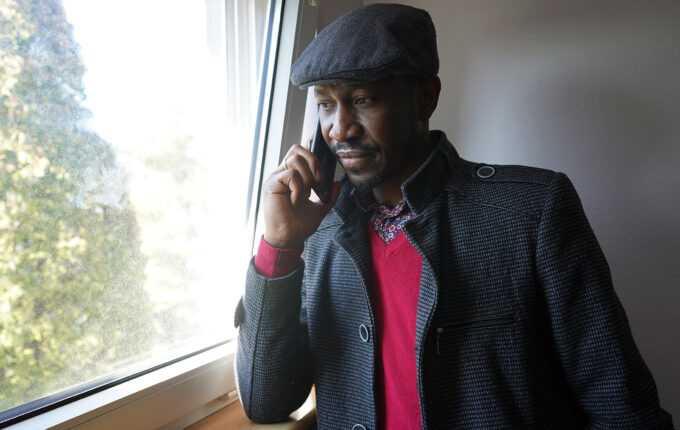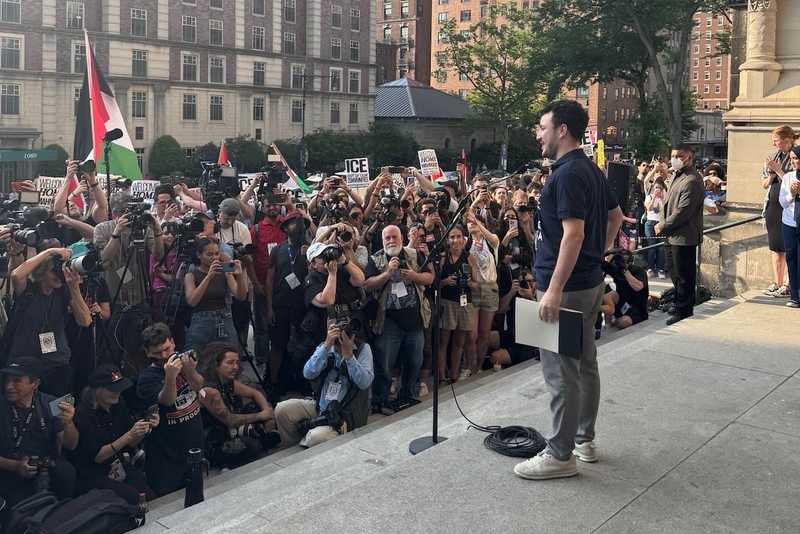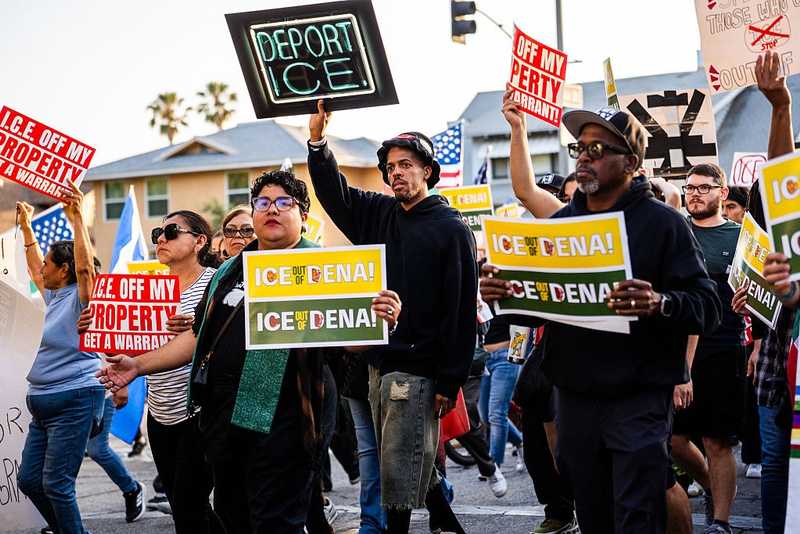
It is a minister from Nigeria, his home country. He adjusts his collar, puts the call on video, and smiles. “Good afternoon,” he says, “I am doing very, very well. Today has been the best day so far.”
I’m not so sure he is doing as well as he says. His voice betrays his exhaustion. He explains that since Russia invaded Ukraine on February 24, he has been scrambling to find food, shelter, and transportation for the thousands of African international students fleeing the war. But he has finally secured a centralized place where he can bring people to sleep. This is a huge victory.
Every day he has been driving to the border along Ukraine, in Polish towns like Przemsyl, Medyka, Lubyca Krolewska, and Korczowa. He began by simply approaching any Black person he saw and asking if they needed help. Sometimes the language barrier was difficult. Some Black refugees from Ukraine only speak French or Portuguese, but he said has always found ways to communicate.
As the chairman of Nigerians in Diaspora here in Poland, Omoshoto felt he had to jump into action. He started receiving calls from frightened African students on the first day of the Russian invasion, asking him where they could go to get to safety. At first, he wasn’t quite sure how to help. He was as bewildered as they were about this war. But he shared his phone number with activists, who shared it to Twitter to get the widest reach for students frantically trying to connect with someone who can help.
Of the nearly 2 million people who have fled so far, nearly two-thirds have gone directly to Poland. A large population of Ukrainians already exists in Poland, many having fled the war in Ukraine’s east in 2014. Since 2015, Poland has issued nearly a million work visas to Ukrainians. Many Ukrainians are now seeking to rejoin family or friends in Poland or elsewhere in Europe. But international students, many of whom came to Ukraine just weeks before the war began, have no network outside of the country.
As soon as Omoshoto is off the phone with the minister, his phone rings again. He answers and puts it on speaker. A woman is crying. She says her son has been detained at the border, and she doesn’t know why. Omoshoto tries to reassure her, saying she should stay calm. He explains that is illegal for him to be held at the border, that according to the Geneva Conventions anyone escaping a war zone is legally entitled to cross the border. “No, no, they won’t send him back. They can’t send him back.” He knows this is little comfort, and says there is not much he can do. “I am on the Polish side. Once he gets across to Poland I can help, but I cannot help while he is still in Ukraine.” He is not a diplomat, he says, so he cannot negotiate with border guards. He can only help once they cross over. She cries, but says thank you and hangs up. He sighs as his phone immediately dings with more text messages and another incoming call.
He shows me the inundation of messages he is getting—his inbox says 257. “I’m getting calls like that every day,” he says. “People are reaching me from Romania, Moldova. I’m just in Poland. I don’t know how to help when they’re there.” But he has another problem to focus on. He needs to find a driver to go to the border and transport people back to the shelter. He has secured several buses, but has no one to drive them. He isn’t sure if people with Nigerian drivers’ licenses are allowed to drive in Poland. He gets a call from a Polish volunteer based in Lodz, to the west of Warsaw. Omoshoto is thrilled. “You’re right on time,” he says, “We need drivers like, yesterday.” But the driver can’t do it for another two days. Omoshoto says carefully and urgently, “Unfortunately, that won’t do. We need to get people now. Like right now, as in today.”
Omoshoto understands the plight of these students. Although he never fled war, he came to Poland 15 years ago as a student. His parents were both university professors in the southwestern Nigerian town of Ilorin, and he also aspired to be a teacher. When he arrived in Poland, he was vulnerable and experienced countless acts of racism. “I was spit on. I was beaten up once,” he says. He still doesn’t take public transportation or go out after dark, and he avoids the city center when there are soccer matches. He has not experienced much overt racism since taking these precautions, but says he can still feel the eyes of security guards when he walks into stores.
Despite this, he tells me he did not initially believe the accusations of racism at the border—or did not want to believe them. “Everybody is running away to safety. So I wouldn’t imagine that Ukrainians would say they want to use Africans as human shields or Indians as human shields. I mean, that’s very derogatory,” he says. “I didn’t believe it, because I assumed that the reason why they would say you went there is because they wanted women and children to go first, right? But then when you have 10 Ukrainian women and then you have 10 African women and they prioritized those 10 Ukrainian women, that tells me something is wrong. That is segregation. That is discrimination. That is racism.”
The past seven years have been particularly difficult for people of color in Poland. The right-wing populist Law and Justice party came to power on an anti-immigration platform. Anti-immigrant rhetoric has led to spikes in violence against people of color in Poland, and the national Independence Day march on November 11 of every year has become a gathering point for international far-right groups who march through Warsaw chanting, “White Poland, white Europe.” On March 1, a video circulated online that alleged that Black refugees from Ukraine were being chased and harassed by a far-right “civic patrol” in the border town of Przemsyl. While Omoshoto believes in the kindness of the majority of Polish people, he wants to protect refugees of color who are coming into Poland without support.
As we talk, messages continue to flood in. A group of women have crossed the border, and he shares the address with them and tells them to go to the shelter. He turns on the heat in the room, because he wants it to be warm for them when they arrive. Later in the day, they call to say they decided not to stay at the shelter and wanted to find their own arrangements. They explain that they’re concerned about whom they will find there. There have been rumors of trafficking going around. Omoshoto just hopes they are all right, wherever they end up.
In the week since I first interviewed him, he says, the shelter has filled multiple times and he is now sourcing extra accommodation at hotels. Currently, he just wants to maintain the logistics he has established—buses that regularly go to the border and bring people to safety. People stay, sleep a night or two, and then move on elsewhere in Warsaw, in Europe, or back home to Africa. He told me he plans to extend his aid to all refugees, not just Africans. But for now, he has seen that there needs to be a dedicated resource just for refugees of color, and he feels that the work is not yet over.
“This is not their war,” he says, speaking of the international students caught in the cross fire. “But at the same time, it has become a war for all of us, in a way.”
Photo: Dr. Tade Daniel Omoshoto.







